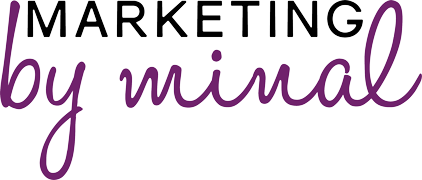How to handle that “just tell me the price” question and win the deal
JUST TELL ME THE PRICE AND THEN WE’LL TALK!
How many of your prospects ask you what your cost is when they first contact you?
How many demand to know what you cost even before they want to know anything else?
Resist the temptation!
How tempting is it to tell them? After all, you’re a high-quality provider, you have a string of testimonies of customers recommending you. Everyone in your peer group knows you work hard and that you offer superb value. If a prospect has found you, contacted you and is interested enough to want to know how much you cost, then surely that’s very positive, isn’t it?
Yes and no. Telling people what you cost before you know exactly what they want and why they want it should be avoided where possible and here is why. If you tell people the price before you know the context of the value you add, at best you’re starting the negotiation on the wrong footing and at worst unlikely ever to hear from that prospect again.
Why? Because by supplying your price alone, at best you’re not positioning yourself in the optimum light in terms of what value you may be able to deliver. At worst you’re quoting for the wrong thing.
Just because someone asks how much your service costs doesn't mean you should tell them. You need to show them the value of working with you. Click To TweetA TV is a TV, is a TV…
Here’s a simple real-world example. You want a new television. You’ve owned various televisions for 30 years so you know what features you want; what size you want and have an idea how long each brand tends to last so can assess value.
Looking online, you can see that £500 will buy you an excellent TV. If you go into the shop to buy it and a salesperson wanders across to “help” you’re confident enough in your purchase to politely tell them to help someone else. Almost anyone can buy a good TV on their own.
The value of experience
Here’s another real-world example. Let’s say your central heating is ailing and you decide you need a new boiler for your house. Online you can see that boilers cost from £500 to £1500 but unless you’re a heating engineer do you really know whether you can get away with spending £500 on a basic model or whether you need to cough up £1500 for a more expensive one? Which is best for your property?
And then there’s installation and maintenance. Unless you’re a certified engineer you can’t legally fit it yourself so what are the options? Will they take the old one away? How soon can the work be done? Perhaps the existing boiler can be repaired? Maybe there’s nothing wrong with your boiler and your radiators are clogged up and you’re about to completely waste £1000.
If your job is selling boilers, would you really countenance a customer you’ve never seen before walking in off the street, handing over £1000 without you at least asking them a) how they will install it and b) do they have a clue what they’re doing?
Prospects need to understand the value of the experience you will bring to their projects. Have a conversation with them rather than quoting a price straightaway. Click To TweetWhy the “it depends” reply is important
When a prospect contacts you for a price, exactly the same applies because you’re a small business owner who trades on value. A price for what exactly? Don’t you have a dozen “it depends” questions you really need to know the answer to so that your prospect is better informed on how to make the decision rather than just how much “it” might cost?
If so, then you can’t give a price. You don’t know what they want. You don’t even know yet if your prospect needs what you offer and/or is asking for the right thing. After all, you’re the specialist and they’re asking you for your services, so you almost certainly know what you’re talking about better than they do. And even if your price is the same for everyone, don’t you at least want to know if your prospect is serious?
What you should do when they say just tell me the price?
So, returning that prospect that says “just tell me the price”. How should you deal with requests like this?
First and foremost, push back on the initial request for a price. Ask them for a call or a meeting to understand the context of what they want to do, where you get to ask them that handful of “it depends” questions, so you can find out whether you can help them.
You can couch this something like “There’s a range of things I can offer but I need to know a bit more about you specifically before I tell you what the cost will be” or “I charge by the day and I need to understand what you need so I can quantify how long it will take me.”
Help prospects understand that what they will pay depends on their needs. That means a conversation so you're both on the same page. Click To TweetAny sensible prospect should understand this and appreciate you asking to help further qualify their requirement and once they agree then great! You can ask them what they want to achieve and in so doing provide a better context for you to work out what you can do to help them, ultimately telling them how much you will cost. (This is also the quickest way to sniff out timewasters).
A stubborn hardcore set will insist they still want “just a price”. Okay, money is finite and cost is important. But value-add is the other side of this equation and if your prospect is so motivated by price above other factors then they might not be your ideal customer. Anyone who wants to buy something without appreciating that not all providers are the same is less likely to appreciate your value-add. Hold firm; unless it’s apparent they’re a great prospect do not provide your price. If they’re truly interested, they may yet come back and ask for a call.
How to handle the “tell me the price” brigade
Here’s an example on how a successful Q&A with a prospect might go:
Prospect calls your telemarketing company wanting to know your daily price. You decline to tell them and they agree to a call where, during your Q&A with them you discover that their proposed campaign is for 30 days of your time to find leads where each deal they ultimately close can be worth up to £10,000.
This is a high-value prospect to you – 30 days is a big deal to you – so commands your attention. It’s also a big deal for them: getting this right (or wrong) will make a material difference to their sales. You’ll assign your best telemarketers and focus your selling efforts on the quality of your service. How much should they care if you charge £270 a day if your competitor only charges £240?
Dig a bit deeper
If you have the chance via a meeting with them to explore these metrics then you have the ability to remind them through their selection process that yes, you aren’t necessarily the cheapest provider however if they think in terms of potential value delivered then, in their case, price really shouldn’t be the determining factor.
Oh, and that discount you generally give for longer contracts… you can keep that in your back pocket for now. You’ve built a rapport, established credibility, learned your prospect’s background and positioned your value accordingly. Only if you subsequently receive any pressure on your price might you shave a bit off your price.
The same prospect also emails your competitor who quickly replies with £240 a day. No questions, no attempt at value add, no rapport. A decent prospect will wonder how anyone can quote a price without knowing the full story.
Digging deeper into what potential clients' outcomes are will help you understand how to price your services. Click To TweetThe above examples are simplifications of course, but I’m sure many small business owners can apply similarities to their situation, demonstrating that you need to be able to position value when someone demands a price.
This is a guest post by Ian Little, who has over 20 years’ experience of B2B sales. He’s worked for small and big businesses. This is the third in a series of posts he has written to help any small B2B business understand how to prepare for and make a sale. ICYMI, the second post covered how to handle objections.


Your blog is so great and it is very relatable. I love how you put things down in a simple and fun way
Thanks so much! I try to put things in a clear and simple way as possible. This post was actually written by my husband, so the kudos goes to him!